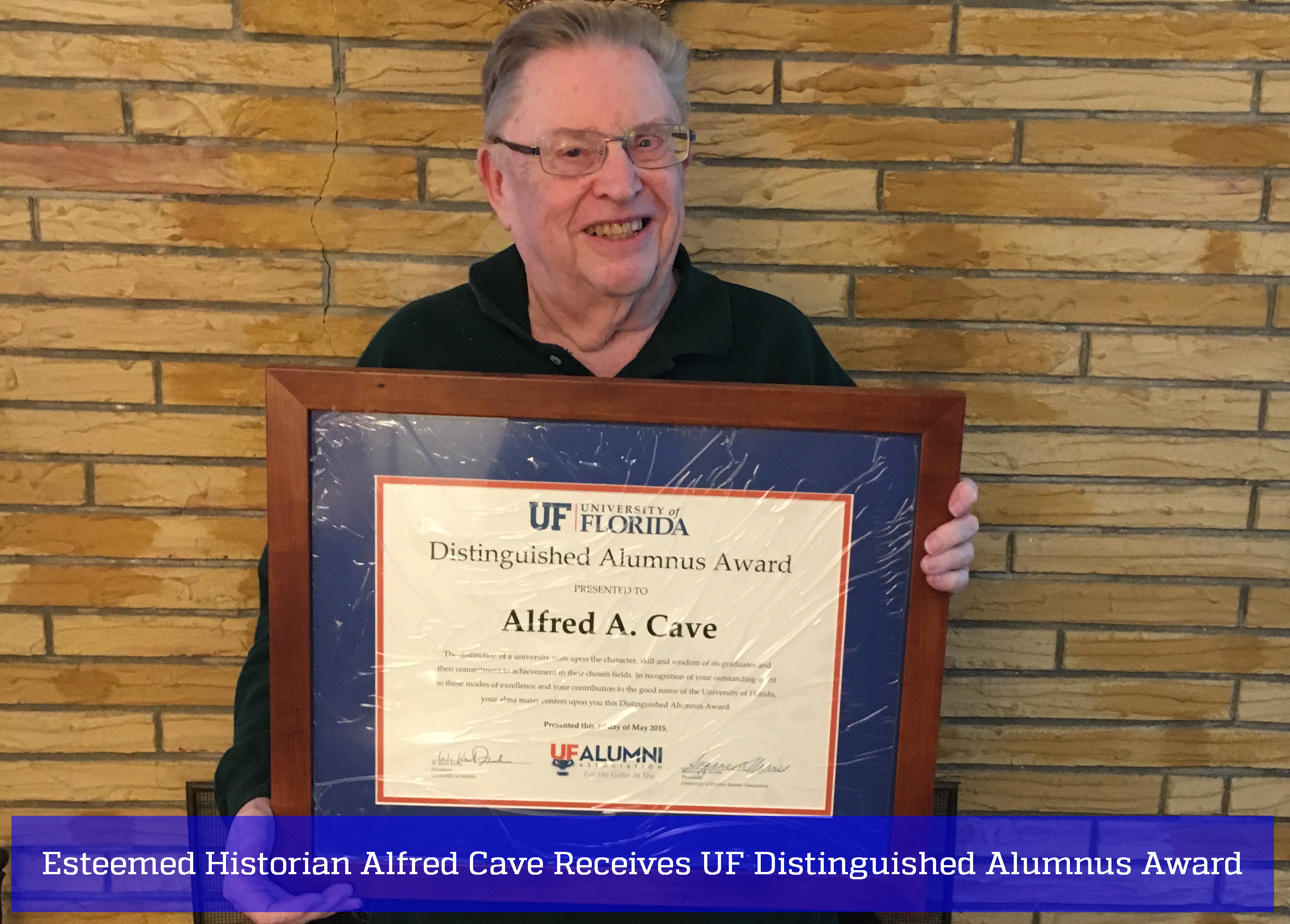
Alfred A. Cave Endowment Annual Scholarship, 2025
American Indian and Indigenous Studies (AIIS) Program at the University of Florida
The Alfred A. Cave Scholarship is awarded annually to an outstanding student pursuing the study of Native American history (including archaeology). Preference is given to applicants pursuing research on Native North America, but applicants interested in Indigenous Latin America are welcome to apply. Candidates should have a cumulative GPA of 3.5 or better. We particularly welcome applications from enrolled members of Native American communities, but outstanding non-Native applicants are also eligible. Candidates will write a two-page essay describing their interests in Native American history and plans for future studies. The candidates will submit academic transcripts, their essay, and one letter of recommendation to the Director of the AIIS Program, who will circulate the materials to the annual selection committee.
Applications are due by March 31, 2025. All applications should be sent electronically to Ken Sassaman (sassaman@ufl.edu).
The amount of the award is $1,000 for the academic year Fall 2025-Spring 2026.
Announcing the 2025 Cave Scholars
Announcing the 2024 Cave Scholars
Announcing the 2023 Cave Scholars
The scholarship honors the memory of Alfred A. Cave, historian and alumnus of the University of Florida who studied the ethnohistory of colonial America and Jacksonian Democracy. Born in 1935 in Albuquerque, New Mexico, Professor Cave graduated with a Bachelor of Arts, Magna Cum Laude, from Linfield College in 1957. He earned his Master of Arts and Doctor of Philosophy degrees from the University of Florida in 1959 and 1961, respectively. Professor Cave’s doctoral dissertation was titled “The Jacksonian Movement in American Historiography.”
Over the course of his career, Professor Cave taught at the City University of New York, the University of Utah, the University of Florida, and the University of Toledo. During his tenure as Dean of Arts and Sciences at the University of Toledo, enrollment in the College increased to the highest number of students in its history. Professor Cave was instrumental in developing the exchange program with Salford University in Manchester, England, a study abroad program that continues to flourish. He also formed the first College committee on women’s studies, the forerunner to the eventual program and department. In 2012 the Ohio Academy of History awarded him with the Distinguished Historian Award. He received the Distinguished Alumnus Award from the University of Florida in 2015.
Professor Cave was a scholar throughout his personal life as well. He enjoyed reading, especially philosophy, theology, poetry, and history. Music was also a passion of his. He embraced the Fine Arts and passed his love for them on to his children and grandchildren. The love of the arts, nature and education was a fundamental part of his approach to raising his children and grandchildren. He inspired all of them to appreciate such things and pursue knowledge and higher learning. He also loved to travel with his family and shared many memorable trips to several places all over the world. Professor Cave considered his children, grandchildren and his students his greatest legacy.
Professor Cave’s wife, Mary Koslovsky, underscored that “Writing was integral to his life and his nature. Up until a couple weeks before he died, he said, ‘I have an idea for another book’.” Professor Cave’s celebrated oeuvres on Native Americans spanning the colonial and Jacksonian periods in American history include The Pequot War (University of Massachusetts Press, 1996), The French and Indian War (Greenwood, 2004), Prophets of the Great Spirit: Native American Revitalization Movements in Eastern North America (University of Nebraska Press, 2006), Lethal Encounters: Englishmen and Indians in Colonial Virginia (Praeger, 2011), and Sharp Knife: Andrew Jackson and the American Indians (Praeger, 2017).
His many prominent journal articles include “Canaanites in a Promised Land: The American Indian and the Providential Theory of Empire” (American Indian Quarterly, 1988), “Who Killed John Stone? A Note on the Origins of the Pequot War” (William and Mary Quarterly, 1992), “New England Puritan Misperceptions of Native American Shamanism” (International Social Sciences Review, 1992), “The Shawnee Prophet, Tecumseh, and Tippecanoe: A Case Study of Historical Myth-Making” (Journal of the Early American Republic, 2002), “The Abuse of Power: Andrew Jackson and the Indian Removal Act of 1830” (The Historian, 2003), and “The Origins of Genocide against Native Americans: Virginia in the Seventeenth Century” (Global Dialogue, 2013).
Professor Cave passed away on September 8, 2019 in Sylvania Township, Ohio, after a courageous battle with Parkinson’s Disease.
Source material: Mark Zaborney, “University of Toledo professor honored as ‘distinguished historian’.” Toledo Blade, September 12, 2019; “Dr. Alfred A. Cave,” Salt Lake Tribune, September 12, 2019.